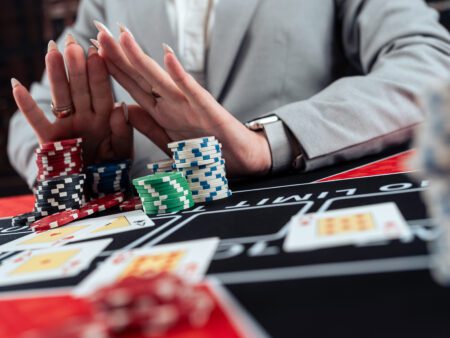Delve into the psychology of winning in online gambling and understand the impact of emotions, game types, and fallacies on players’ experience.
The Psychology of Winning: Understanding the Thrill of Online Gambling
Online gambling has become an increasingly popular form of entertainment for millions of people around the world. However, the appeal of online gambling goes beyond the convenience and excitement it offers. There is a fascinating psychology behind the thrill of winning and its impact on players’ emotions and behaviors. In this article, we will delve into the psychology of winning and explore why it is such an integral part of the online gambling experience.
The Thrill of Winning
Winning is an exhilarating experience that triggers a release of dopamine in the brain, a chemical associated with pleasure and reward. When we win, our brain’s reward system is activated, creating a euphoric feeling that keeps us coming back for more.
Online gambling platforms are designed to maximize the thrill of winning. The flashing lights, celebratory sounds, and the sight of coins pouring out enhance the excitement and reinforce the positive experience. These visual and auditory cues create a sense of anticipation and heighten the emotional impact of winning.
The Role of Emotions
Emotions play a crucial role in the online gambling experience. Both positive and negative emotions can have a significant impact on a player’s decision-making abilities and behaviors. For example, when a player is on a winning streak, they may feel invincible and more inclined to take risks. Conversely, after a loss, they may experience frustration or disappointment, leading to impulsive betting in an attempt to recoup their losses.
Recognizing and managing emotions while gambling is essential for responsible play. It is important to set realistic expectations and understand that winning and losing are both part of the game. Developing emotional resilience and maintaining a sense of control can help players make rational decisions and prevent excessive gambling.
The Fallacy of Gambler’s Fallacy
The gambler’s fallacy is a common cognitive bias that many players fall victim to. It is the belief that previous outcomes in gambling events influence future outcomes. For example, if a player has experienced a series of losses, they may believe that a win is due, leading them to place larger bets or play for extended periods in the hope of a turnaround.
Understanding the fallacy of gambler’s fallacy is crucial for responsible gambling. Each gambling event has independent outcomes, and previous results have no impact on future ones. It is essential to make decisions based on probabilities and not let emotions or false beliefs dictate betting patterns.
The Impact of Game Types
The type of game a player chooses can also influence their psychological state. Different games offer varying levels of skill, chance, and interactivity, which impact the intensity of the gambling experience.
Chance-based games, such as slots or roulette, rely solely on luck and offer little control over the outcome. These games can be highly exciting due to the unpredictable nature of the results. Skill-based games, on the other hand, require strategy and decision-making, providing a sense of control and achievement when successful.
Understanding the psychological impact of different game types is crucial for choosing the right game that aligns with personal preferences and goals. Some players may seek the thrill of chance, while others may prefer the challenge and satisfaction of skill-based games.
Conclusion
The psychology of winning in online gambling is a complex and fascinating subject. It highlights the powerful role of emotions, the impact of game types, and the fallacies that can influence decision-making. By understanding these psychological aspects, players can approach online gambling responsibly, with a better understanding of their own emotions and motivations.
Remember, online gambling should always be enjoyable and done within personal limits. If you or someone you know is struggling with problem gambling, seek help from a professional organization dedicated to responsible gambling.










